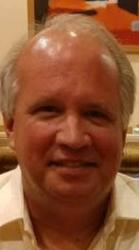Days may be numbered for historic Interlagos and–for that matter–the Brazilian Grand Prix altogether. Here’s why.
This weekend marks the next to last race of the 2019 Formula 1 season. And with the Constructor’s title won in Japan by Mercedes, and the driver’s championship taken two weeks ago in Texas by Lewis Hamilton, there’s nothing much to see except for the rest of the racing season. However, there is something else of note. It has to do with this particular race.
Will the race continue at this venue? Will it be moved to another circuit? Or will it vanish altogether from the Formula 1 schedule?

Carlos Pace (photo, Formula 1 Wiki)
For perspective, Sunday’s race has a considerable history. It has been included on the F1 calendar since the early 1970s, held at the eponymous town and circuit, Interlagos, which means “between the lakes.”
Home heroes who’ve won this race include Emerson Fittipaldi (1973 and 1974), Carlos Pace (1975), Nelson Piquet (1983 and 1986), Aryton Senna (1991 and 1993), and Felipe Massa (2008), who was the last Brazilian to win. Pace lost his life in a private plane crash one year following his victory in Brazil, and the circuit was renamed Circuit Carlos Pace in his honor.
The racecourse is a counterclockwise, 2.8-mile, 71 lap track, which goes up and down in altitude, and draws many fans to this venue. But fans must walk to get there, and many tour companies, such as Grand Prix Tours and Tours F1, do not include the race in their itinerary.
The reason is crime. Nearby Sao Paulo has a high crime rate. Theft has been a problem, especially with many affluent F1 fans in attendance, not to speak of celebrities who walk about the venue. Team members aren’t off-limits, either. 2009 world champion Jenson Button was a victim, robbed at knifepoint, and teams have complained over the years about having pit garages burglarized with items taken, such as tires and chassis parts.
There’s only one year left on Interlago’s current contract, and the idea has been advanced about replacing this venue with a newer track up the coast in Rio.
It doesn’t seem likely that the Brazilian Grand Prix, especially with the late Aryton Senna buried in Sao Paulo, will continue here. But another matter may loom even more significant. For the first time in many seasons, no Brazilian driver competes in Formula 1.
What does it all mean? It might be a hard sell to keep one of the sport’s classic races on the F1 program.














